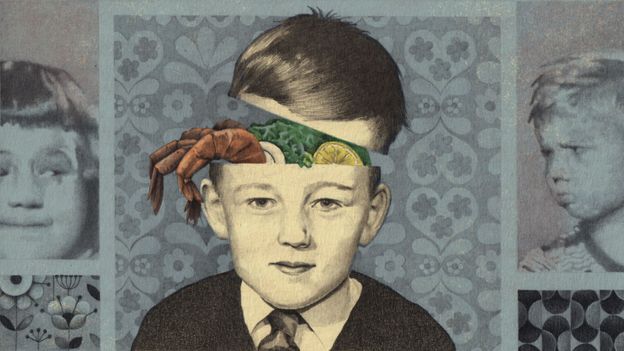My siblings and I always knew when our middle brother was coming to visit my parents: my mother would put out little bowls of prawn cocktail, as a special starter.
“Prodigal son,” we would protest, slightly miffed that the rest of us never had this kind of privileged treatment. The official explanation was that he didn’t come over for Sunday lunch as often as the rest of us, but that still didn’t really seem fair.
In truth, despite the prawn cocktail, I did not think my parents had any favourites. I grew up as one of six siblings in a working-class family in north London. Of course, my brothers, sister and I all had different roles and jobs in the family, but the reasons just seemed practical. As the youngest, for example, I was always the one to go fetch things for my parents, maybe because they thought I had lots of energy anyway. My sister was usually the one to go shopping, because she could drive. It was a busy house and to add to the mix, we also owned a dalmatian dog, Sheba.
Overall, it all felt quite even-handed to me. But last year, at a family gathering, one of my brothers blurted out that he thought I was my father’s favourite.
My sister seemed a bit surprised by that. And I realised that there might be more to the story I had told myself – of our parents not really having favourites. I wondered how people in my and other families really experience these dynamics, and how they might shape us in the long run even if we’re not fully aware of them.
Research suggests that parental favouritism is surprisingly common – and rather than being just a quirk of family life, can actually be very harmful. It occurs in around 65% of families, and has been identified and studied across many different cultures. As widespread as it is, it can damage children’s wellbeing across the lifespan, from their childhood into middle age and beyond. It is considered such an important factor in a range of emotional problems that psychologists have a name and acronym for it: “parental differential treatment”, or PDT.
However, as in my exchange with my brother, siblings in the same family may disagree over whether their family is even affected by it. That’s because feeling less-favoured can be very subjective, says Laurie Kramer, a professor of applied psychology at Northeastern University in the US. “It is the experience that people have, that a parent prefers another child to them,” she says. “This could be by devoting more time, attention, praise, or affection. Possibly asserting less control, so that they may enjoy fewer restrictions, be subject to less discipline or even punishment.”
Importantly, not everyone in the family may see it that way. “This may not be the same observation that the other sibling encounters and may be different again for what the parent believes they have engaged in,” says Kramer.
For the person who feels like they are treated as second-best, the consequences can be profound. Research suggests that from an early age, children are aware of differential treatment, such as parents showing more warmth to one sibling than another. Such perceived parental favouritism has been associated with low self-esteem in children, as well as childhood anxiety, depression, and behavioural problems, including risky behaviour. There may also be a knock-on effect on emotional wellbeing that causes other, more indirect problems. Researchers in China have, for example, shown that parental favouritism is a predictor for mobile phone addiction in adolescents. In a small Canadian study of eight homeless teenagers, seven said they felt that their parents had favoured a sibling over them, while they had always been the “problem child”, and that this had contributed to the breakdown of family ties.
While this final study is too small to draw wider conclusions, it highlights just how far a child’s experience of favouritism can potentially go.
#lifelong #effects #favourite #child


